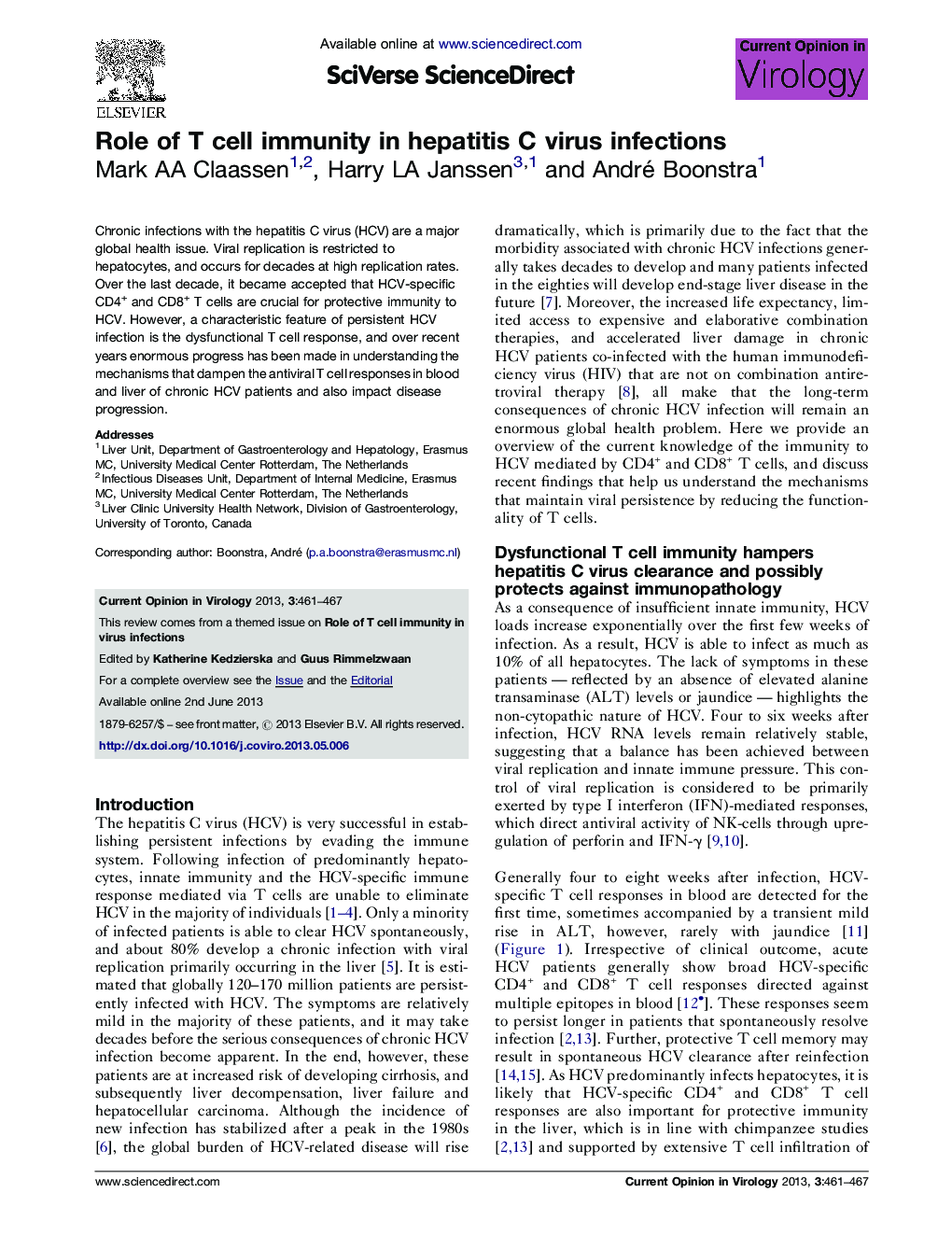| کد مقاله | کد نشریه | سال انتشار | مقاله انگلیسی | نسخه تمام متن |
|---|---|---|---|---|
| 5806874 | 1113013 | 2013 | 7 صفحه PDF | دانلود رایگان |

- HCV-specific T cells are essential for protective immunity to HCV and disease progression.
- During persistent infection, HCV-specific T cells are functionally impaired.
- T cell exhaustion and active suppression contribute to T cell dysfunction in chronic HCV.
- HCV-specific T cells expressing IL-17/IL-22 may modulate severity of liver disease.
Chronic infections with the hepatitis C virus (HCV) are a major global health issue. Viral replication is restricted to hepatocytes, and occurs for decades at high replication rates. Over the last decade, it became accepted that HCV-specific CD4+ and CD8+ T cells are crucial for protective immunity to HCV. However, a characteristic feature of persistent HCV infection is the dysfunctional T cell response, and over recent years enormous progress has been made in understanding the mechanisms that dampen the antiviral T cell responses in blood and liver of chronic HCV patients and also impact disease progression.
Journal: Current Opinion in Virology - Volume 3, Issue 4, August 2013, Pages 461-467